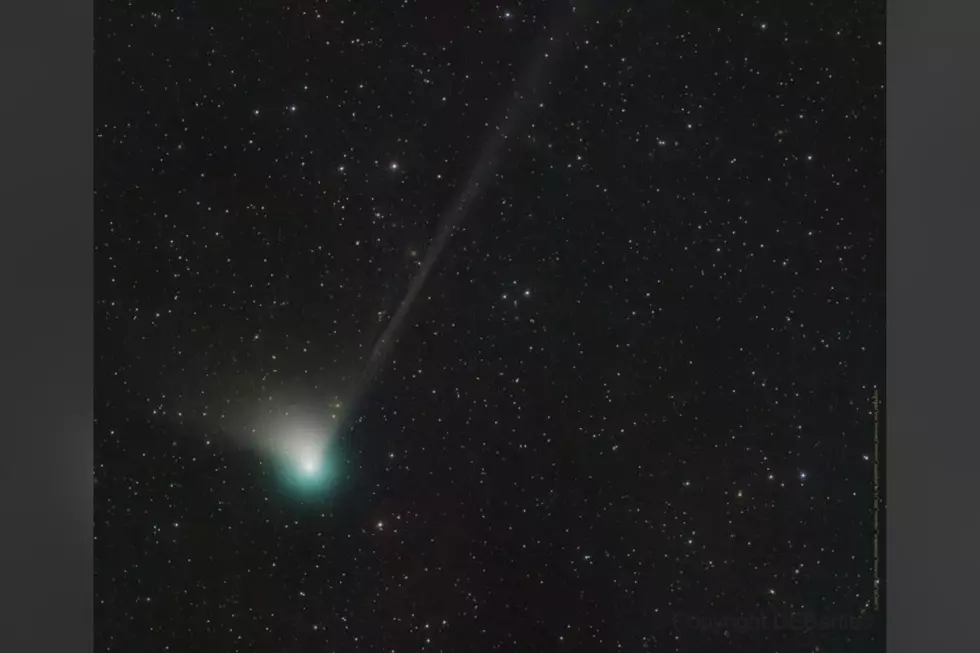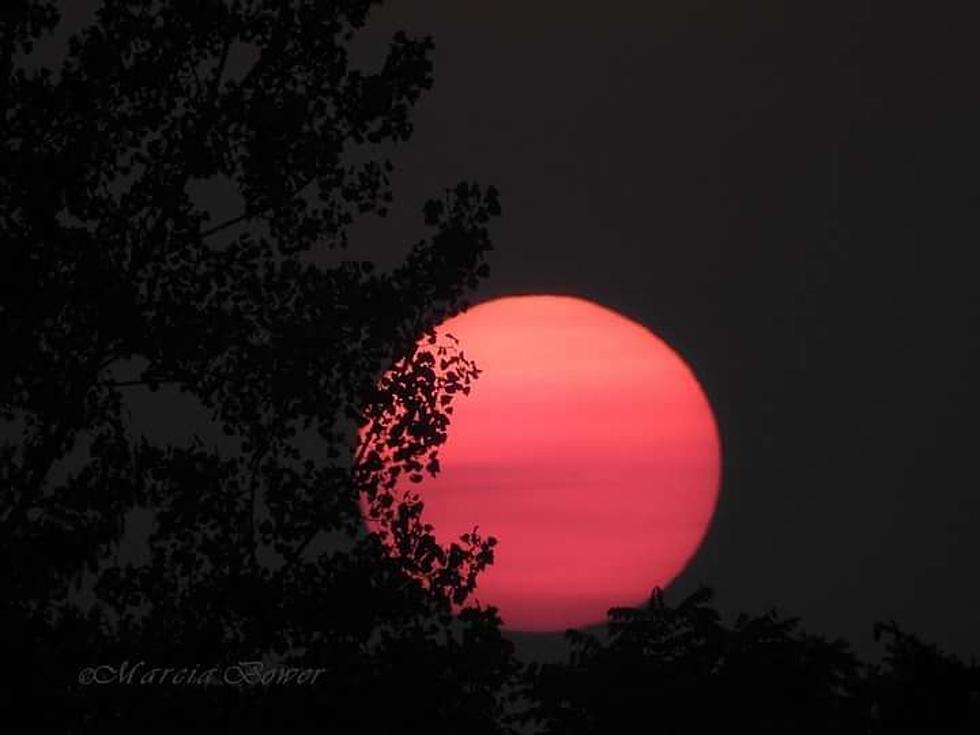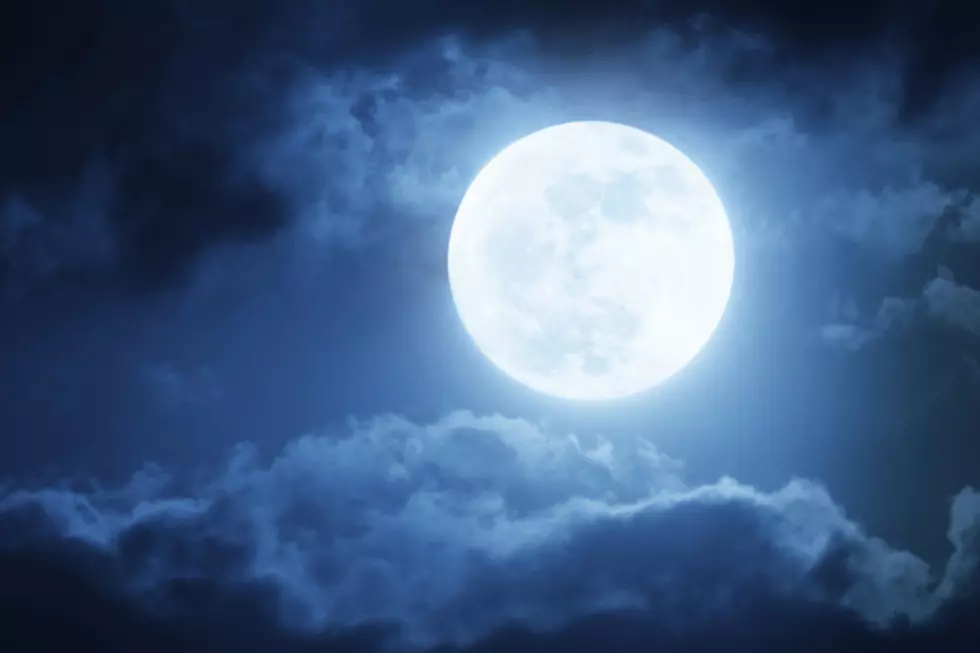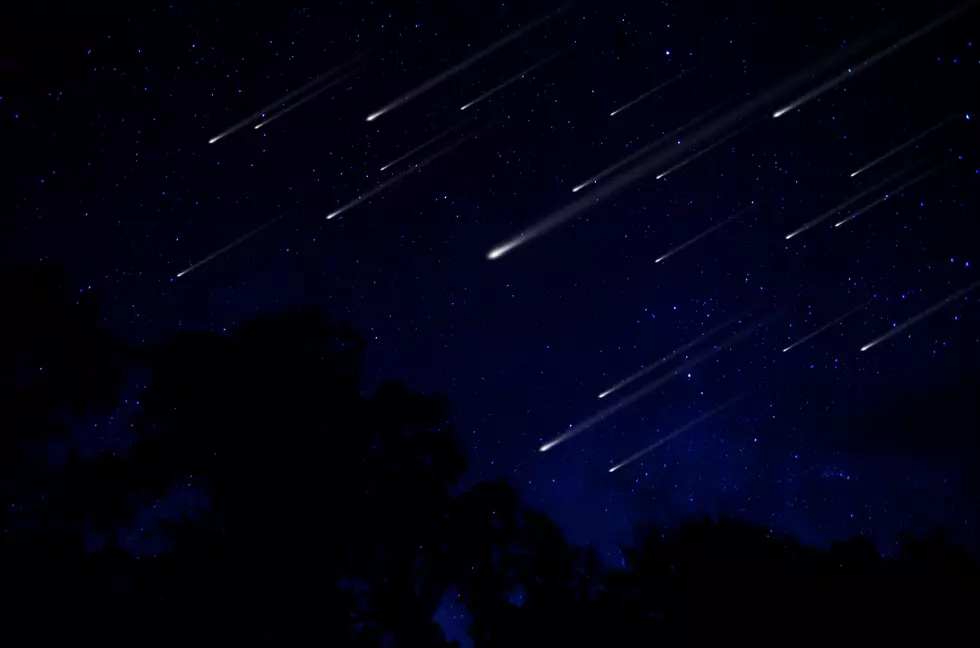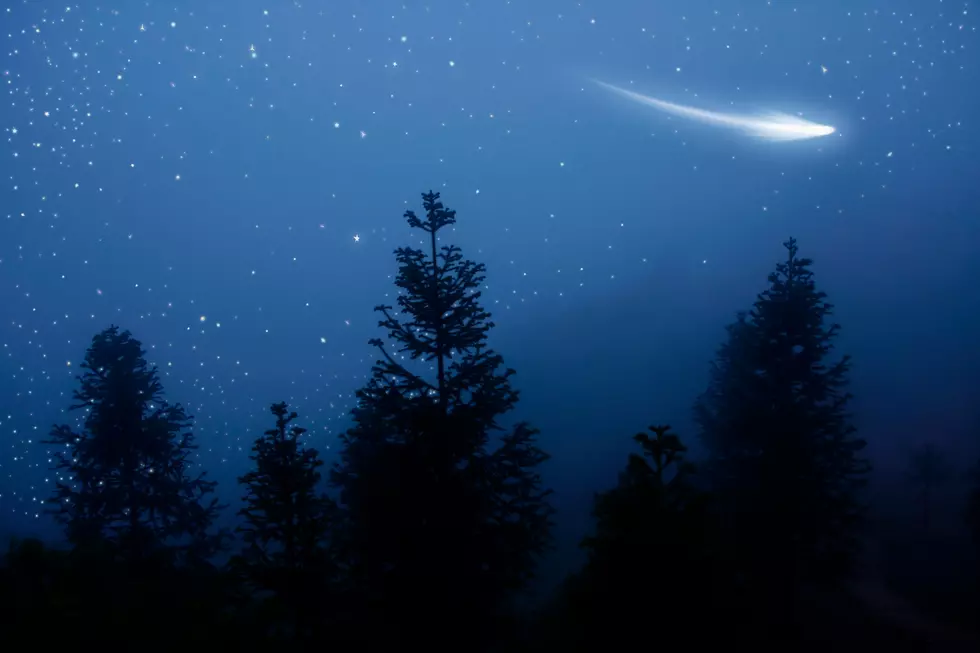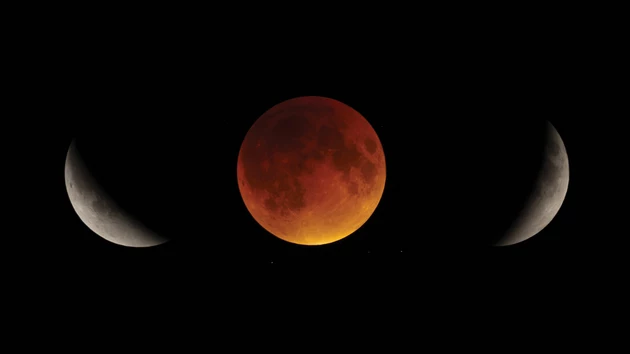
Red moon rising: Total lunar eclipse visible from NJ this weekend
What and Why?
One of the most spectacular phenomena in nature is set to occur at the end of this weekend. And New Jersey will have a front-row seat — if clouds cooperate.
A total lunar eclipse happens when the moon passes into the Earth's shadow. That shadow gradually takes a "bite" into the light of the moon. And then during "totality," the moon can turn from silvery gray to a dark orange or red color.
This Sunday 5/15 into Monday 5/16, a total lunar eclipse will be visible for much of the Western Hemisphere — including all of New Jersey.
This will be the first time the moon has ducked completely into the earth's shadow in almost a year, since May 26, 2021. You may remember a partial eclipse of the moon a few months ago, in November 2021. The last total lunar eclipse viewable in New Jersey occurred on January 20-21, 2019.
When?
If you're hoping to see the eclipse magic, you'll have to stay up late Sunday night. Or wake up extra early Monday morning, I suppose.
Here is the timeline of how the eclipse will progress. All times listed are Eastern Daylight Time, a.k.a. New Jersey local time.
—Penumbra first visible (light shadow)... about 10:00 p.m. Sunday
—Partial eclipse begins (dark shadow)... 10:28 p.m. Sunday
—Total eclipse begins (red shadow)... 11:29 p.m. Sunday
—Mid-eclipse... 12:12 a.m. Monday
—Total eclipse ends... 12:54 a.m. Monday
—Partial eclipse ends... 1:56 a.m. Monday
—Penumbra last visible... about 2:30 a.m. Monday
What You'll See?
Over the course of 3+ hours, the lit part of the moon will gradually erode away, from left to right.
During totality, when the entire surface of the moon is shrouded by the Earth's umbra (darkest part of the shadow), it doesn't completely disappear. Instead, the moon should take on a reddish color. The "red umbral glow" as its known is called by refraction of light. Just as sunrises and sets often turn an orange-red color, the moon's reflected light is also refracted (bent) to longer wavelengths.
In addition, Sky & Telescope magazine also suggests "viewers will have the opportunity to see the summer Milky Way glowing nicely during totality as the overwhelming brightness of the full Moon is dimmed by Earth’s shadow."
As the moon slides out of the umbra, the process runs in reverse. The moon will gradually brighten again from left to right, as the eclipse concludes.
Will the Weather Cooperate?
Eh, possibly.
Sunday will be fairly warm and humid, with mixed sun and clouds. Unfortunately, cloud cover does look to thicken up Sunday evening. There could be some showers around too.
So viewing conditions will not be crystal clear and pristine in New Jersey. But there is a chance you'll be able to see the moon at times Sunday night.
No matter the weather, you will be able to watch the eclipse live via a number of professional live streams. Options include the Virtual Telescope Project page and the .
Next Eclipses?
Another total lunar eclipse is coming up on November 8, 2022. But you'll have to be in the middle of the Pacific Ocean for the best view.
A penumbral lunar eclipse will occur on March 25, 2024 — New Jersey will be able to see about 95% of the Moon fall into the "light shadow" of Earth.
New Jersey's next shot at a total lunar eclipse is almost three years away — March 14, 2025.
Of course, our next "big" astronomical event — a total eclipse of the sun — is coming up on April 8, 2024. The path of totality will just miss New Jersey, clipping Ohio, New York, and northern New England. You'd better mark your calendar, since that will be the last solar eclipse visible in the continental United States until August 12, 2045.
Finally, for the record, isn't it amazing that we can calculate the dates of these astronomical phenomena so precisely and so far in advance? Yeah, science!
Dan Zarrow is Chief Meteorologist for Townsquare Media New Jersey. Follow Dan on Facebook or Twitter for your latest weather forecast updates.
Wow! Views of the sunrise solar eclipse in U.S. and world
Questions to ask to see if someone’s REALLY from New Jersey
More From 105.7 The Hawk
